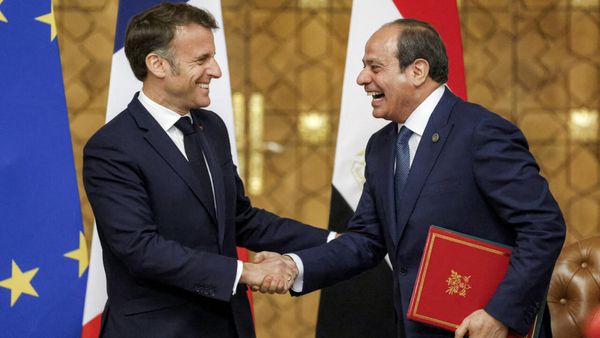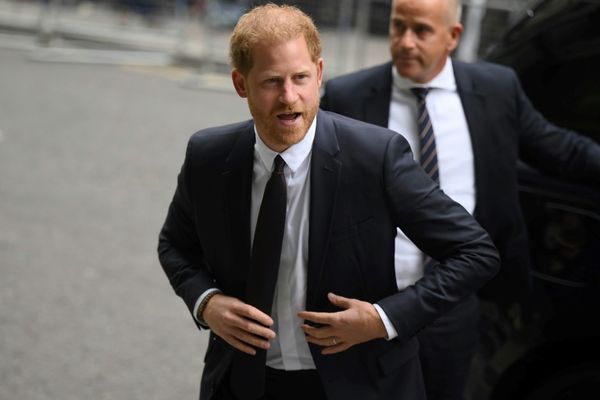
As the Labour party conference gets under way in Liverpool today, one of the most striking outcomes of the 2024 election will be on full display: more than half of the Labour MPs elected in July – 231 out of 411 – are completely new to the job.
For many of them, the past 11 weeks have been a tornado of activity as they try to set up offices and hire staff while contending with overflowing inboxes and adapting to some of the odder features of their new workplace, from bobbing in the chamber to jarring sound effects in the halls. Even those familiar with Westminster life are still getting lost in the maze of corridors.
Here, we speak to seven of the new guard, each with a trait that reflects some key aspect of the 2024 intake. Youth is very much a factor, with Labour boasting the first British MP born in the 21st century. Military experience is another: the new member for Leyton and Wanstead is just one of several veterans in the Labour ranks. Also profiled here is an activist who won back a red wall seat, an insider who snapped up a demanding ministerial post, and the slayer of one of the biggest Tory beasts to fall in this summer’s election. All of them face huge challenges as Labour settles back into power but each comes to the job with enthusiasm and ambition to burn. Killian Fox
* * *
The arch-insider
Miatta Fahnbulleh, MP for Peckham
People on the street would hug me and say: “Our sister is going to win”
Entering Westminster for the first time is a mad scramble for any new MP, but for Miatta Fahnbulleh the past couple of months have been especially intense. “I’ve been pretty busy,” she says, laughing at the understatement. “You have to set up a parliamentary office, you have to set up a constituency operation – and then I got the privilege of being asked to be a minister, so you’ve got to step into that as well.”
Appointed minister for energy consumers, Fahnbulleh was quickly thrust into the new government’s most heated debate. We speak a few days after Rachel Reeves announced that winter fuel payments would have to be limited to the poorest pensioners, drawing fire from charities and members of her own party. So what will Fahnbulleh be doing to help people struggling with their energy bills?
“Well, look, we know that this is a massive issue,” she says. “We know that we’ve got to try to help people going into this winter. I just had a roundtable with some of the [energy] suppliers, where we’re going to come together to pull together a package. But the government has a clear agenda, which is getting bills down and delivering clean power by 2030… And while we do that, we do what we can to support particularly our vulnerable customers.”
The 44-year-old isn’t coming to this cold. Educated at Oxford and LSE, she’s been working across different areas of public policy for the past 15 years, first with the prime minister’s strategy unit and the Cabinet Office, then as an adviser to Ed Miliband. After the 2015 election she “took a step back from the frontline of governing and into the world of thinking”, joining the progressive thinktank IPPR and then the New Economics Foundation as chief executive.
It was the pandemic that brought her back to the political frontlines. “I thought it would be a pivotal moment for change,” she says, referring to the opportunity that Covid presented to address social inequalities. “Not only did that change not materialise, but in many respects we went backwards. That was pretty winding for me.”
When she heard Harriet Harman was stepping down in Peckham, where Fahnbulleh was raised – her family moved to south London from Liberia when she was seven – putting herself forward as a Labour candidate was “a no-brainer”. During her campaign she saw extreme hardship but also resilience and hope. “The thing I loved was going down the high street and people would hug you and say: ‘Our sister is going to win. You’ve walked in our shoes, you understand what we are going through.’ That was very humbling.”
Despite her years of experience she still gets lost in the maze of corridors around Westminster, and in the chamber she’s flummoxed by the custom of bobbing to catch the speaker’s attention. “It’s not quite sitting down, it’s not quite standing. You’ve got to bob up and down on your knees. I could not wrap my head around it.” She appreciates the uniqueness of parliament but feels there’s a need for modernisation. “In the end, we’ve got to make it work for busy people, who are parents, who are community advocates, who are campaigners. We need to structure it in a way that allows us to do the most important job that MPs can do, which is represent and support their constituencies.” KF
* * *
Baby of the house
Sam Carling, MP for North West Cambridgeshire
I have a very different experience of some of the issues in society right now
When I call Sam Carling eight weeks after the election, he’s in his shared flat in Cambridge looking a bit wild-eyed. “Everything still feels very full on,” he says. “I’m in the middle of dealing with loads of personal stuff because I wasn’t necessarily expecting to win. I’m moving to London literally tomorrow, and then I’ve got to move into my constituency flat in Peterborough next week.”
Carling, who defeated the Tory MP for North West Cambridgeshire by a whisker on 4 July, is, at 22, the baby of the house – the youngest MP in parliament and the first to be born in the 21st century. (Of the 10 politicians under 30 taking up their seats in parliament this summer, all but one stood for Labour.)
Carling grew up in rural County Durham, where direct experience of crumbling public services stirred his political awareness. “Declining budgets in schools was a really obvious one,” he says. “My own sixth form closed because of that, and I watched high streets becoming derelict. But I never necessarily made the connection down to Westminster, because I grew up in a very apolitical family, for religious reasons.” (Carling was raised as a Jehovah’s Witness but has since “sort of lost faith in that religion”.)
“It was during the pandemic that everything clicked into place,” he goes on. “I thought, who are these people running the country? They’re a bit terrible – anybody could do a better job than this.”
At Cambridge, where he specialised in pathology, Carling stood for selection as a Labour councillor, getting in on his second attempt before his 20th birthday. On top of that, he was also a trustee of Cambridge University and active in the student union. “It was a lot of hard work,” he admits, “but I came to university with the mindset of: I’ve got three years here, I want to get the absolute most out of it that I can.”
His multitasking skills should come in handy now as he transitions to Westminster. As well as relocating, he’s had to hire staff, which can take months, while trying to keep on top of emails and acclimatising to his highly unusual new workplace. It’s the noises of Westminster that he’s found strangest – the guitar riff that plays in the halls whenever the speaker changes; the nerve-jangling bells that ring whenever there’s a vote.
Then there’s the barrage of questions about being a 22-year-old MP. These come almost entirely from the media, he says pointedly. “Constituents sometimes go: ‘Oh yeah, you’re quite young, but actually, yeah, why not? We need young people.’”
He sees only advantages in his youthfulness. “I have a very different experience of some of the issues in society, and therefore I can contribute to a lot in the discussions around them.” Precarious housing is one such issue. Education is another. “At school, I could see the impact budget cuts were having. I could see what it was doing to staff. I could see things going downhill. And so I therefore have a perspective that could well be useful – not just in revitalising education but lots of different areas.” KF
* * *
Journalist turned politician
Yuan Yang, MP for Earley and Woodley
UK journalism is not at loss for ideas. What we’re at a loss for is political leadership
When Yuan Yang decided to make the leap into politics last year, applying to be the Labour candidate in the newly formed Earley and Woodley constituency in Berkshire, the person who most needed convincing was her mum. “She said to me: ‘You have a very stable career. You’re enjoying your job. You like your colleagues and they like you. Why would you want to jump into something so insecure and unstable?’”
It was a good question. Since completing a master’s in economics at LSE in 2013, Yang had forged a dream career in journalism, working first at the Economist and then in the Beijing bureau of the Financial Times. Later she became the FT’s London-based Europe-China correspondent. She also wrote a book, Private Revolutions, tracking social upheavals in China through the lives of four young women, which came out earlier this year to glowing reviews.
So why leave all that behind for a career in politics?
The answer had been building inside her gradually. Yang had become a Labour party member right after leaving university. Returning to the UK in 2022 after six years in China, she became more actively involved, door-knocking around Reading where her parents lived. Last November, the Boundary Commission review led to the creation of the Earley and Woodley constituency, which was “a really crucial marginal seat” for Labour. “I felt like I could make a difference there,” says the 34-year-old. As for leaving her job, she reasoned that “in the richness of UK journalism, we’re not at loss for ideas. I think what we’re at a loss for [in the UK] is political leadership and politicians who actually implement the right ideas.”
Yang understood her mother’s concerns about her career change, which went beyond job insecurity. Part of the reason her parents left China in the mid-1990s, when Yang was four, was to get away from politics. Tiananmen Square was fresh in the memory, and as academics they felt under pressure to join the Communist party. “So they certainly didn’t encourage me to be political,” she says.
Eventually her mother relented. “I think I showed her through my dedication on the campaign trail that this is something I was really devoted to. And a few months down the line, she actually started to come out and leaflet with me. My dad headed what we call the garden stakes team, putting signs in people’s gardens. So they both came round to it.”
What’s remarkable about Yang’s transition is its speed. Less than a year ago she was battling deadlines for the FT. Now she’s finding her feet at Westminster, marvelling at the fact that she gets physical mail from constituents, which arrives in a thick package every morning alongside “a hefty inbox” of emails.
She believes her skills as a journalist will serve her well in the new job. She’s used to interacting with “a huge variety of people” and listening to their views. “Another part of my time as a journalist was spent trying to communicate about often quite technical issues in an accessible way to a larger audience. In politics, it’s often the same. I’m trying to figure out how to communicate these things so that government can be more accessible to the general public.” KF
* * *
Distinguished veteran
Calvin Bailey, MP for Leyton and Wanstead
I told my wife: “You know I said five years… How about in three days’ time?”
When Calvin Bailey won a scholarship with the RAF aged 15, it wasn’t just a step towards a glittering military career that would earn him a profusion of medals and an MBE for “gallant and distinguished services in the field”. It was also an escape from the fears and confusions of his childhood in south-east London, beset by far-right violence and the pressure to become politically active in response. “I wanted to bury my head in the sand,” he says. “I wanted not to be part of it.”
Bailey, 47, was born in Zambia to a Zambian mother and English father who relocated the family to London and settled in Plumstead. The area was “incredibly diverse” but the far right was threaded through it – a friend’s older brother was a member of the BNP. Badly shaken by the racist murders of Rolan Adams in 1991 and Stephen Lawrence two years later, Bailey – who was close friends with Lawrence’s younger brother Stuart – took to carrying a knife. “It was pathetic, an inch-and-a-half blade, but I remember finding it in my dad’s toolbox and thinking, I’ve got to have one of these.”
The air force took him away from all of that, though not out of danger. His last day of training was 11 September 2001. He went on to serve in Afghanistan and Iraq, Haiti and the Philippines. For years Bailey believed in the mission to extend western-style freedoms across the world, but when he was tasked with evacuating Britons and eligible Afghans from Kabul airport in 2021 as the Taliban regained control, something inside him broke. He describes it as a “haemorrhaging”. “I was just thinking, how have we given up? I was so angry with the government.”
The experience reawakened his political fire. He attended the Labour party conference in 2022 and was impressed by what he saw: “The approach to life of: ‘Let’s fix the problem, let’s talk honestly about things and tackle them in a meaningful way.’ I found it really compelling.”
He hoped to stand in south-east London but was asked to interview for Leyton and Wanstead instead, sooner than anticipated. “I got off the phone and had to turn to my wife and say: ‘Right, you know I said five years, how about in three days’ time?’” He laughs wryly. “I’m still trying to catch up with myself, if I’m honest.”
The first couple of months in post were “incredibly difficult”, dealing with hundreds of emails without any staff to help out, but now he’s getting to grips with it. The military experience probably helps – he’s “very good at dealing with contingencies and crises”. (Bailey is one of several new Labour MPs with army backgrounds; others include Alistair Carns, Louise Jones and Bayo Alaba.)
Bailey has several priorities for his new job, including forging closer ties with Europe and increasing social mobility, but a major concern is the resurgence of the far right. As well as pushing back against it, he wants to make sure that young men from minority ethnic backgrounds don’t get sucked into political violence like he almost did as a child. “If I had been caught with that knife,” he says, “it could have derailed the wonderful life that I’ve had.” KF
* * *
Red wall reclaimer
Marie Tidball, MP for Penistone and Stocksbridge
The house staff talked to me about what I would need as a disabled member
For any Labour candidate, taking back the South Yorkshire constituency of Penistone and Stocksbridge, a red wall seat seized by the Conservatives in 2019 with 47.8% of the vote, was going to be an uphill struggle.
Marie Tidball was asked to stand in July 2022. By then, the sheen had gone off Boris Johnson’s government and Labour was in the ascendant, but success was by no means guaranteed. Tidball embarked on a campaign of “relentless door-knocking” across the constituency, speaking to thousands of people over two years about their hopes, needs and dissatisfactions. She had recently become a mother and had a book deadline looming. To add to the physical challenge, she has a disability since birth that affects all her limbs and requires the use of prosthetics. “It was a big juggle,” she says, “but it was something that we just had to get to the other side of and win.”
And win she did, by a whopping 8,739 votes, a testament to her hard work and eagerness to engage. It helped that Tidball, 40, grew up in the area, the first local in more than 100 years to become its MP. “My life runs through it as a golden thread,” she says. “I know almost every inch of it really well.” She became politically aware from a young age thanks to her parents – her dad was a Labour county councillor. They made sure Tidball had access to disability support and filled her with confidence. “Their philosophy was: ‘No such word as can’t.’”
She studied law at Oxford and then “spent a decade and a half doing work in that space around disability law, disability rights and the education deprivation gap” with organisations such as Autism West Midlands. She returned to Oxford to do a master’s and then a doctorate on the treatment of autistic people in the criminal justice system, which she published as a book earlier this year. In Oxford, she was a city councillor and stood as an MP for Labour in 2017, finishing third – a valuable dry run for her successful bid seven years later.
Her first few weeks after the election were mostly spent learning the ropes in Westminster and getting to grips with a building that was not designed with accessibility in mind. “I was extremely impressed by the house staff who talked to me about what I would need as a disabled member and came up with solutions,” she says, “and then working with the whips to identify the location of an office that would enable me to get to vote in time [eight minutes].” She also had to get permission to wear trainers in the chamber – it’s against the rules but, she says, “because I wear a prosthetic limb and had lots of surgery done, I can’t really wear sensible shoes”.
She says she feels more excited than daunted by the many challenges ahead. “I think I have, it’s fair to say, faced a significant number of barriers in my own life, and the best way I found to go over them is to come up with solutions.” KF
* * *
Labour royalty
Hamish Falconer, MP for Lincoln
I’m incredibly close to my dad – he worked really hard in the last Labour government
Hamish Falconer says his appointment in July as a junior minister at the foreign office came as a total surprise.
“I was completely and utterly stunned,” he says. “I thought when I took the call that it was going to be from Anglian Water, who I was arguing with.”
He realises that he’s got his work cut out being an effective local MP and a new minister learning the ropes of government.
“I’m constantly trying to make sure that I am as visible and as focused on Lincoln’s problems as I would be if I were not a minister,” he says.
There has been something of a dynastic theme among Labour’s new intake, with Georgia Gould, daughter of the late Philip Gould, the influential New Labour consultant, and Liam Conlon, son of Sue Gray, Keir Starmer’s chief of staff, both winning seats.
Falconer is the 38-year-old son of former Labour justice secretary Lord Falconer. At a glance, it could look like a case of connections trumping experience, not least because newly elected MPs don’t usually walk straight into government.
But in fact Falconer the younger is particularly well suited to the role he was handed by Starmer – under-secretary of state for the Middle East, north Africa, Afghanistan and Pakistan – because that is the department where he worked as a diplomat for almost a decade.
“I have found the return to the Foreign Office hugely moving,” he says, “not least because I’m surrounded by people that I used to work with.”
It’s still strange, he says, to hear senior former colleagues refer to him as “minister”, including one man who had sent him off at 4am on a Monarch flight to Tunisia after a terrorist attack in 2015 that killed 30 British nationals, and others he suffered from dysentery with during a stint serving in South Sudan.
But he is getting used to answering questions about his relationship with his father.
“I’m incredibly close to my dad,” he says. “I talk to him regularly, obviously consistent with the Official Secrets Act, and take his advice on all sorts of things. He worked really hard in the last Labour government and achieved real things, and he has the scars on his back to prove it.”
The story goes that before he became a peer, Lord Falconer failed to be selected to be Labour candidate for Dudley North in 1997, after he refused to withdraw his children from private school.
His son respects his father’s stand, though he says: “I personally think prep school is rather unfair, and I support the measures the government has taken in imposing VAT.”
Conscious of his privilege, he says that his advantageous start in life means that he has to “go further to demonstrate that I do understand the vast majority of families in Lincoln who are really struggling”.
Lincoln is a redrawn constituency that the Tories won at the 2019 election. One of the people who helped Falconer regain it for Labour was Peter Jouvenal, a TV producer held captive in Afghanistan by the Taliban whose release was negotiated by Falconer. Jouvenal was a stalwart supporter all the way through the election campaign, and stood with Falconer outside a mosque when it was threatened during the recent riots.
“It’s just so lovely that these two rather different parts of my life have become woven together in this way,” he says with rather touching humility. Andrew Anthony
* * *
Big beast slayer
Terry Jermy, MP for South West Norfolk
When I mention my constituency, there’s a raised eyebrow – they know who the last MP was
Terry Jermy, 39, will forever be associated with the 2024 general election’s standout “Portillo moment”. He overturned former prime minister Liz Truss’s 26,000 majority and won a seat that had been Conservative for 60 years. It was a stunning result, made all the more impressive by the fact that the Labour party had not allocated any funds to the local constituency, because no one was expecting victory.
“We didn’t receive a penny from the national party,” he says. “But I knew that when I put myself forward as a candidate. So we crowdfunded and I think we ended up spending £10,000 on the election, which is quite a lot for a small local Labour party, and the vast majority of that came from small donations.”
He says he was “shocked” by the sheer scale of the correspondence that awaited him on day one. And while he’s been eager to attack the workload, he’s also had to set up a local office and a London office and employ staff, most of whom had to give a month’s notice.
“You want to get the best people but sometimes that means waiting for them, so that does impact your ability to deliver.”
He’s been pleasantly surprised by how helpful and welcoming the Commons support staff have been. “If you happen to be walking around looking lost, they’re very proactive and say: ‘Can I help you?’ And I’ve found that really reassuring.”
Although there are other newbies who unseated big Tory names – Andrew Lewin did for then defence secretary Grant Shapps, and Amanda Martin put paid to the great sword carrier Penny Mordaunt – Jermy is the guy people tend to pick out.
“Yeah, it’s definitely given me a bit of reputation,” he says. “Every time I mention the constituency with the House of Commons staff or other MPs, there’s a bit of a raised eyebrow. They know who the former MP was.”
A longtime local councillor in Thetford, Jermy only became interested in running for MP after his father died from pneumonia and Covid, following a long wait for a GP appointment.
“I just remember being incredibly angry, having been through a period of Covid, and issuing food bank vouchers as a local councillor, and I didn’t feel that our MP was working on behalf of local residents. So I thought I’d put myself forward.”
On election night, Truss appeared to go missing when all the other candidates were lined up on stage ready to hear the result.
“I still don’t understand why we were all up there,” he says. “It was awkward because I knew the result but I didn’t want to give the game away. I tried to put on a poker face but I don’t think I did a very good job.”
He says he’s had no communication with his predecessor since that night, which he finds disappointing.
“It’s inevitable that I’ll stand down or lose at some point, but whoever the person is who replaces me, Conservative or whatever, I’ll do my absolute best to make sure that they start as well as they can because that’s what’s right for the residents in the area.” AA







